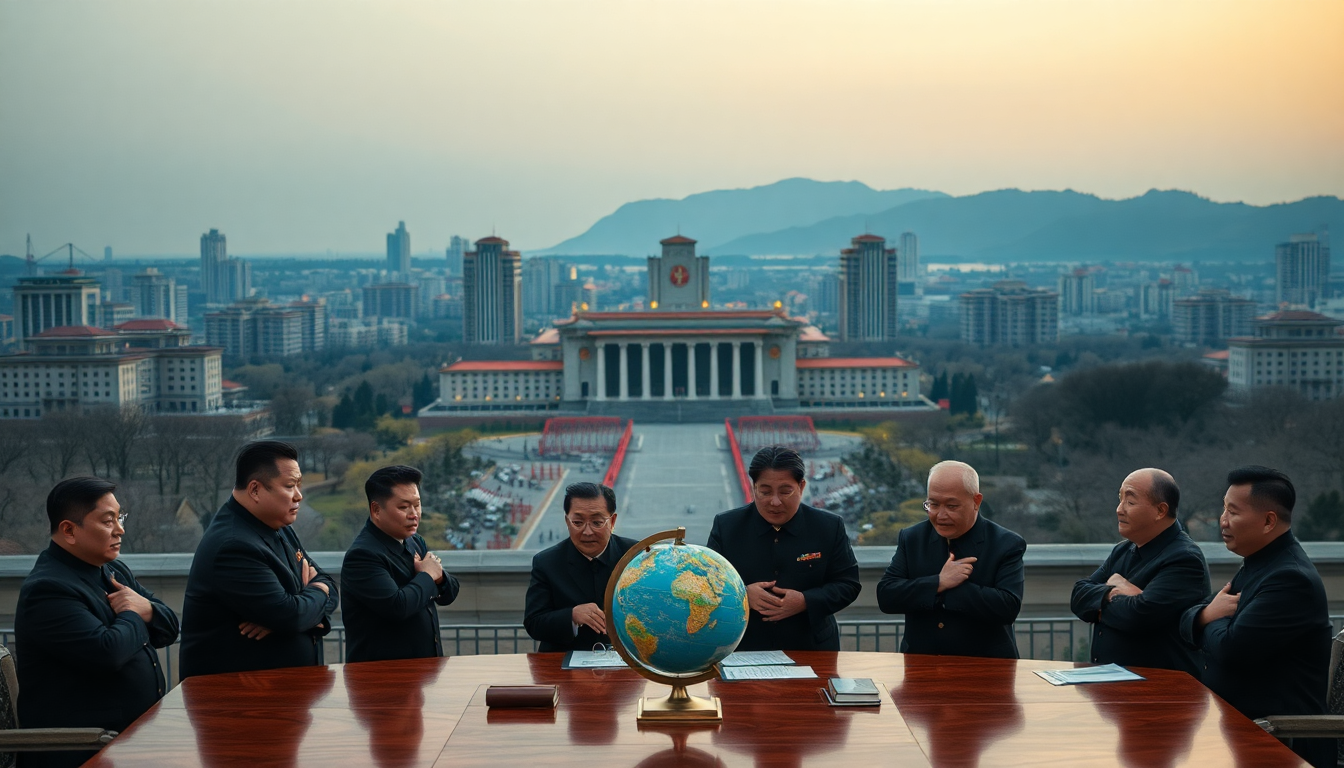Table of Contents
In the constantly shifting world of international relations, one issue consistently grabs headlines: North Korea’s nuclear ambitions. This situation is especially tense when it comes to the United States. Recently, Kim Yo Jong, the influential sister of North Korean leader Kim Jong Un, made it clear that her country is not interested in engaging in any discussions about denuclearization.
Her statements not only reflect the current geopolitical climate but also highlight the intricate web of diplomacy in this unpredictable region. So, what exactly does this mean for the future of U.S.-North Korea relations?
The Unyielding Nuclear Position of North Korea
Kim Yo Jong’s assertion that the United States must recognize North Korea as a nuclear weapons state marks a significant shift in the conversation about disarmament. She argues that any talks aimed at dismantling their nuclear capabilities would be seen as a “mockery” of the realities on the ground.
It’s a bold declaration, and the takeaway is clear: North Korea’s nuclear abilities are now an inextricable part of its national identity, forged through years of strategic development.
As reported by the state-run Korean Central News Agency, Kim emphasized that the geopolitical landscape has “radically changed,” indicating that the U.S.
needs to rethink its approach. She made it clear that any denial of North Korea’s nuclear status would be met with firm resistance. This tough stance mirrors a broader sentiment among North Korea’s political elite, who view nuclear weapons as essential to their security and a source of national pride.
Can we expect any flexibility from them?
The implications of this hardline position are significant. Historically, the U.S. has pushed for denuclearization, but Kim’s comments suggest a potential pivot that could reshape future diplomatic interactions. If North Korea begins to see dialogue as merely a one-sided demand for disarmament, it could lead to even more roadblocks in having constructive conversations.
How can both sides move forward under these conditions?
Repercussions for US-North Korea Relations
Kim Yo Jong’s statements signal a pressing need for the U.S. to reassess its relationship with North Korea. By claiming that confrontation benefits neither party, she opens the door for alternative forms of engagement—provided the U.S. acknowledges North Korea’s nuclear status. This creates a dilemma for U.S. policymakers: should they continue to push for denuclearization, or adapt to the new reality of having a nuclear North Korea?
The dynamic between Kim Jong Un and former President Donald Trump, while described as “not bad,” fails to bridge the gap in their respective views on nuclear weapons. Kim’s caution against relying on personal relationships to advance denuclearization efforts indicates skepticism about the effectiveness of previous diplomatic strategies. The North Korean leadership seems to think that revisiting negotiations without fundamentally recognizing their nuclear status will lead to disappointment. Is this a point of no return?
Recent comments from a White House official hinting at Trump’s willingness to engage with Kim Jong Un add another layer of complexity. Kim Yo Jong’s response reveals a clear expectation: any future discussions must reflect the changed landscape since their last interactions. This raises crucial questions about how the U.S. can balance its interests in the region while acknowledging North Korea’s entrenched nuclear capabilities.
The Future of Denuclearisation Talks
Experts in international relations, like Jenny Town from the Stimson Center, argue that Kim Yo Jong’s statements fit into a larger narrative from Pyongyang that seeks to redefine the terms of engagement. The idea that negotiations can simply pick up where they left off in 2019 is becoming increasingly unrealistic. Given the advancements in North Korea’s weapons of mass destruction capabilities and the shifts in the legal and policy frameworks surrounding their nuclear program, the landscape for potential talks is far more complicated than before. How can the U.S. effectively respond?
For the U.S., this presents a real dilemma. While there may still be opportunities for dialogue, the framing needs to change. Kim Yo Jong’s comments suggest that future discussions won’t focus solely on denuclearization but instead aim to establish a more stable security framework that recognizes North Korea’s nuclear status. This represents a significant departure from the traditional U.S. diplomatic approach, which has primarily emphasized disarmament.
Ultimately, whether the U.S. is ready to embrace this new reality remains to be seen. The path ahead will likely require a willingness to engage in a more nuanced conversation about security, deterrence, and the geopolitical implications of a nuclear North Korea. As the international community watches closely, one thing is certain: the stakes have never been higher for both countries.





